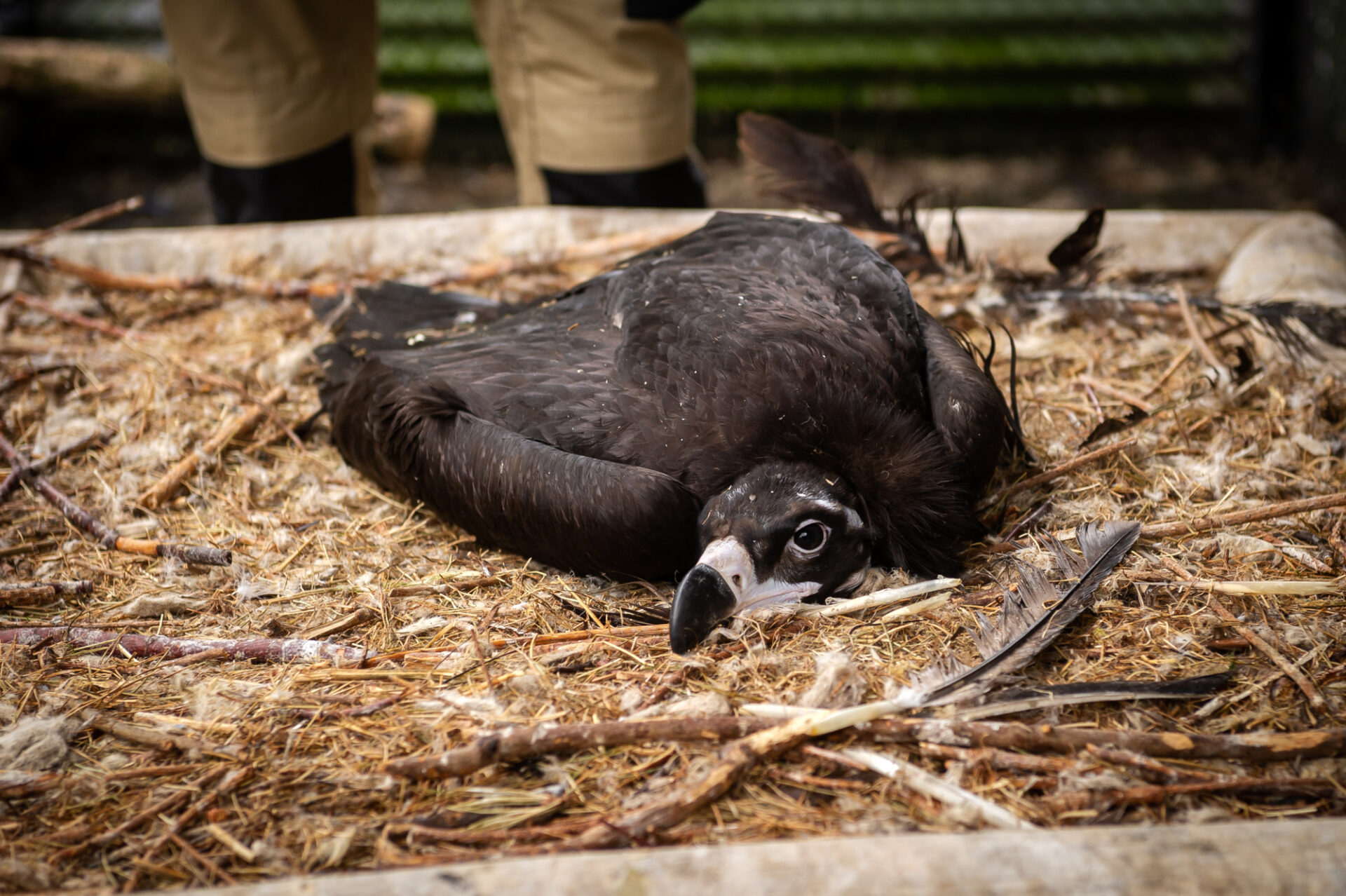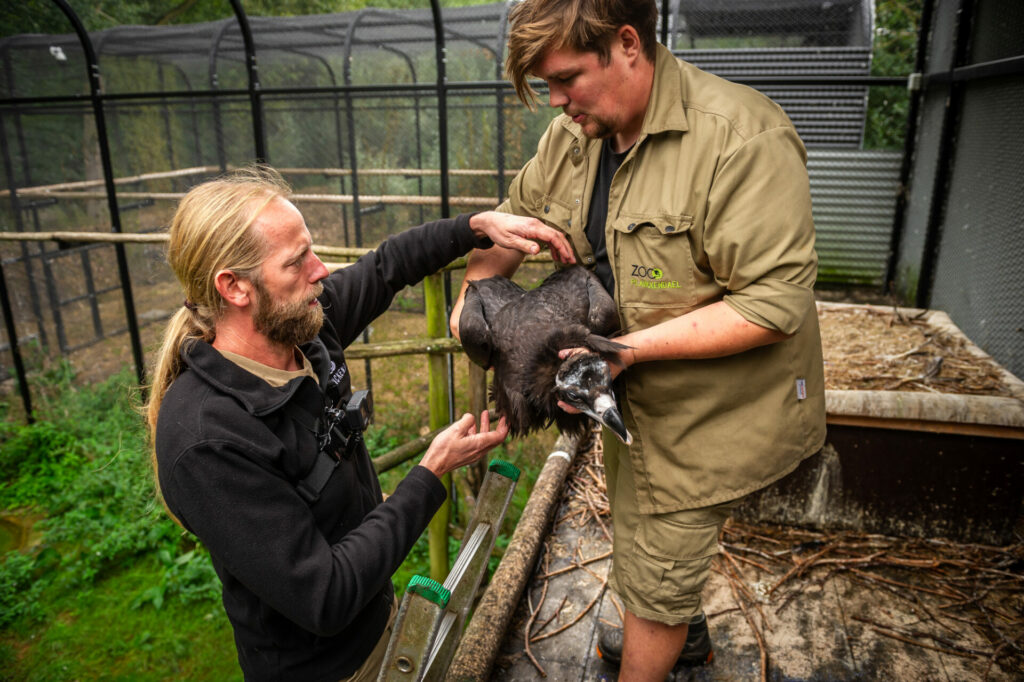As a coordinator of the European breeding programme for endangered black vultures, ZOO Planckendael has released young black vultures into the wild for the third time.
After France and Spain, the zoo located near Mechelen is now also carrying out conservation work in Bulgaria. Three black vultures, one of which was born in Belgium, will help breathe new life into the population in Eastern Europe.
Planckendael hopes that the birds will raise their own descendants within four years and the population in Bulgaria will recover itself.
“This is pioneering work,” the zoo's bird curator Marleen Huyghe said. “As soon as enough birds have been born to maintain the population in the zoo, the young can be released."

Baby vulture is ready for release. Credit: Zoo Planckendael
"We have a dating aviary for this purpose and a breeding centre behind the scenes. This year, three birds are eligible: one from Mechelen and two from the Czech Republic.”
A chip was also inserted into the released birds in advance to be able to track them and help if necessary. To ensure that the animals imprint the new location as their birthplace, they first stay in a large aviary for a month. After that month, the aviary opens and they can choose free airspace.
Related News
- 'Feline overpopulation': Brussels reinforces its cat sterilisation policy
- Controversial dolphin hunting season opens in Japan
However, start of a restocking project remains very risky and there is a possibility that more than half of the young birds die swiftly, as they often fall prey to jackals, among other things.
Vultures were once found across Europe and further afield, from Spain to the Balkans and from Northern Greece to Asia, but today, their so-called “belt” is fragmented and their habitat is shrinking. The ultimate goal of the breeding programme is to see the black vultures flying around again in the natural southern European range.

